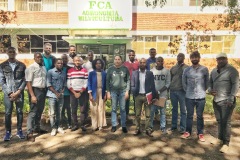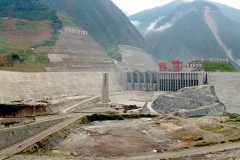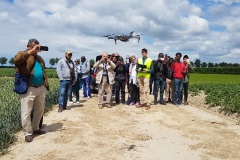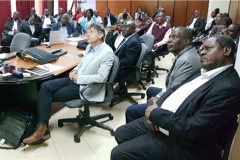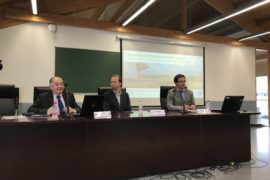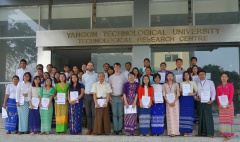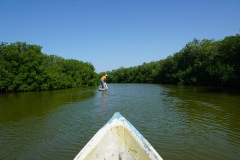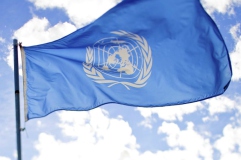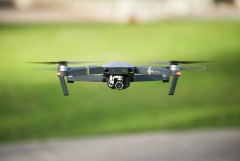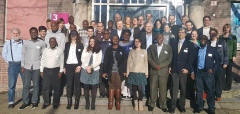Categoría: Uncategorized
9 julio 2018
FutureWater participa en la impartición del Curso en Teledetección y Servicios Agrarios en Angola
El Gobierno de Angola está desarrollando una política para diversificar la economía del país, fuertemente dependiente de los ingresos del sector petrolero. La agricultura se considera uno de los sectores prioritarios para ser desarrollado. Un clima favorable y una relativamente elevada disponibilidad de recursos hídricos y suelos fértiles, pueden propiciar que Angola se convierta en...
5 julio 2018
Mekong State Of the Basin Report 2018: FutureWater prepares Upper Mekong Chapters
The Mekong State Of the Basin Report (SOBR) is published by the Mekong River Commission (MRC) every five years, in advance of the cyclic updating of the Basin Development Strategy. The SOBR plays a key role in improving monitoring and communication of conditions in the Mekong Basin, and is MRC’s flagship knowledge and impact monitoring...
21 junio 2018
FutureWater and HiView give lectures on the use of flying sensors
Last week FutureWater, together with its partner HiView, gave 2 days of lectures at IHE Delft Institute for Water Education, which partners with UNESCO. As part of their master degree, around 25 students were taught on the theory behind flying sensors (also known as drones), the different types of applications and how to use them...
1 mayo 2018
Seminar on the use of flying sensors in agriculture held in Kenya
In a bid to create and increase more awareness on the use of flying sensors (drones) in agriculture, FutureWater and HiView, held a seminar on March 2, 2018 at the KALRO (Kenya Agricultural & Livestock Research Organization) Headquarters in Nairobi, Kenya. The seminar was attended by KALRO researchers, representatives of SNV, government employees, as well...
26 abril 2018
FutureWater presenta públicamente el trabajo de cuantificación de la descarga subterránea al Mar Menor
El pasado 25 de Abril tuvo lugar en las instalaciones de la Universidad Politécnica de Cartagena la presentación en público del estudio que FutureWater ha realizado recientemente sobre la cuantificación de la descarga subterránea al Mar Menor. La descarga subterránea procedente de los retornos de riego de origen agrícola hacia el Mar Menor se encuentra...
12 abril 2018
Training on Google Earth Engine for water resource analysis organized in Myanmar
Last month, the training Cloud computing for water resource analyses in Myanmar using Google Earth Engine, executed by FutureWater and HKV, was successfully conducted at Yangon Technological University (YTU), Yangon, Myanmar. The training was organized in the framework of the Leapfrogging Delta Management in Myanmar, led by Delft University of Technology (TU Delft) and funded...
3 abril 2018
Tercera misión de HERMANA: Presentación de la versión beta del Centro de Información para la Gestión del Agua del Valle del Cauca
Del 5 al 9 de marzo de 2018, un representación del equipo de HERMANA integrada por personal de Deltares, FutureWater y las Autoridades del Agua Holandesas presentó una primera versión del Centro de Información para la Gestión del Agua (WMIC) de la Corporación del Valle del Cauca. Este centro de información pretende ser una piedra angular...
22 marzo 2018
La investigación de FutureWater citada en el informe de las Naciones Unidas
Los 22 de marzo de cada año celebramos el Día Mundial del Agua y ponemos especial atención a la importancia del agua como elemento esencial del desarrollo sostenible. Bajo el lema “La respuesta está en la naturaleza”, este año el Día Mundial del Agua explora cómo la naturaleza puede ayudarnos a superar los desafíos que...
9 marzo 2018
ThirdEye makes drone technology accessible for African farmers
In the Netherlands, drones already play an important role in agriculture: from the air they can monitor the growth of crops very precisely. Here high-quality sensors and relatively expensive drones are used. Thanks to these sensors and special software the needs of the crops (e.g. water, fertilizer or plant protection products) can be calculated. «A...
15 febrero 2018
New Horizon 2020 project TWIGA officially started
Last week the kick-off meeting took place of a new Horizon 2020 project TWIGA; Transforming Water, weather, and climate information through In situ observations for Geo-services in Africa. The project aims to provide actionable geo-information on weather, water, and climate in Africa through innovative combinations of new in situ sensors and satellite-based geo-data. With the...
